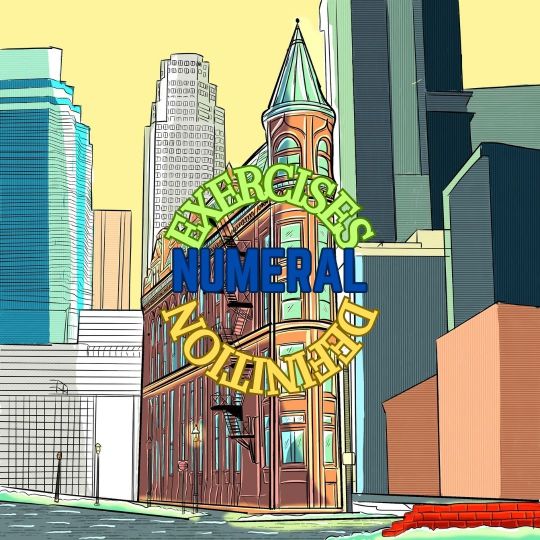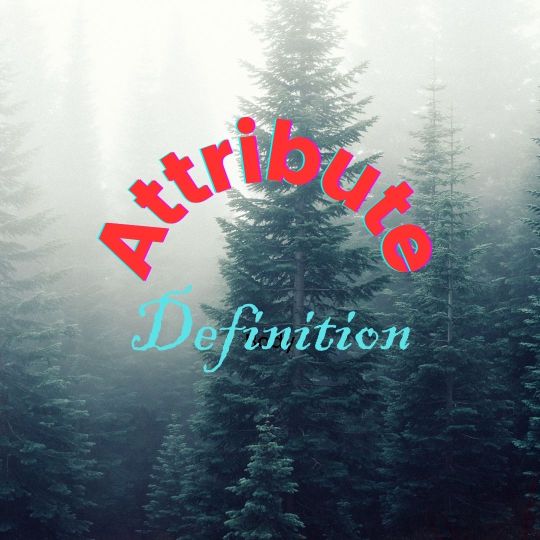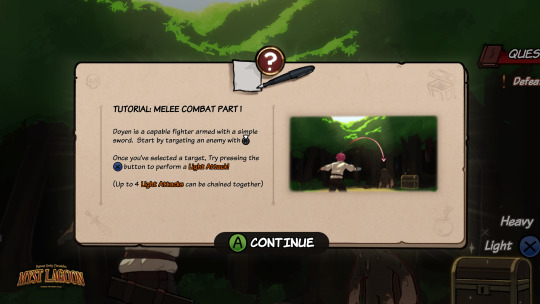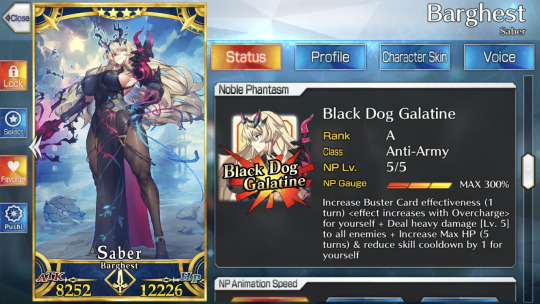#howmany?
Text
Numeral Exercises

NUMERAL DEFINITION AND EXERCISES
In English grammar, numerals function as a part of speech to represent numbers, quantify nouns, and express numerical relationships.
There are two main types of numerals in English: cardinal numerals and ordinal numerals.
Cardinal Numerals: Cardinal numerals represent specific quantities or numbers.
They answer the question how many? and are used to count objects or denote a precise quantity.
Examples:
One, two, three, four, five, six, seven, eight, nine, ten
Eleven, twelve, thirteen, fourteen, fifteen, sixteen, seventeen, eighteen, nineteen
Twenty, thirty, forty, fifty, sixty, seventy, eighty, ninety
One hundred, two hundred, three hundred, etc.
One thousand, two thousand, three thousand, etc.
Ordinal Numerals: Ordinal numerals denote the order or rank of items in a sequence.
They answer the question in what order? and are used to indicate the position of something in a series.
Examples:
First, second, third, fourth, fifth, sixth, seventh, eighth, ninth, tenth
Eleventh, twelfth, thirteenth, fourteenth, fifteenth, sixteenth, seventeenth, eighteenth, nineteenth
Twentieth, thirtieth, fortieth, fiftieth, sixtieth, seventieth, eightieth, ninetieth
Hundredth, thousandth, millionth, billionth, etc.
Numerals can function as determiners when they directly modify nouns, indicating the quantity or position of the noun.
For example:
Cardinal Numeral as Determiner: Three apples fell from the tree.
Ordinal Numeral as Determiner: The first prize goes to the winner.
Numerals can also function as adjectives when they modify nouns but do not directly specify quantity or order.
For example:
Cardinal Numeral as Adjective: She bought two pairs of shoes.
Ordinal Numeral as Adjective: He is in his third year of university.
Additionally, numerals can function as nouns themselves, particularly when referring to numbers as concepts or entities.
For example:
The number eight is considered lucky in some cultures.
She divided the class into groups of four.
Instructions:
Please, do the exercises without seeing the Answers.
If you are unable to find an answer, you can check the answers provided below after attempting all the blanks.
Exercise: Numerals
Instructions: Use the correct words for (numbers in brackets). Write ordinal or cardinal number forms into the gaps:
- My sister is in the ------------ grade (2).
- I have ------------ fingers (10) on my hands.
- There are ------------ days (7) in a week.
- We need ------------ eggs (6) to make pancakes.
- Today is the ------------ day (1) of the month.
- The puppy is the ------------ pet (1) in our family.
- I have ------------ brothers (2) and ------------ sisters (1).
- There are ------------ months (12) in a year.
- She won the race and got the ------------ prize (1).
- My birthday is on the ------------ of July (4).
Correct Answers:
- second
- ten
- seven
- six
- first
- first
- two, one
- twelve
- first
- fourth
Exercise: Numerals
Instructions: Write the numbers in words:
- 75
- 1000000
- 50
- 3
- 12
- 20
- 18
- 45
- 90
- 600
- 0.5
- 0.7
- 0.25
- 0.01
- 2.5
- 0
- 50%
- 25%
- 10%
- 100%
- 1/2
- 3/4
- 1/4
- 1/10
Correct Answers:
- Seventy-five
- One million
- Fifty
- Three
- Twelve
- Twenty
- Eighteen
- Forty-five
- Ninety
- Six hundred
- Zero point five
- Zero point seventy-five
- Zero point twenty-five
- Zero point zero one
- Two point five
- Zero
- Fifty percent
- Twenty-five percent
- Ten percent
- One hundred percent
- One half
- Three quarters
- One quarter
- One tenth
Exercise: Numerals
Instructions: Write the numerals in numbers:
- Seventy-two
- Ninety-nine
- One hundred twenty-five
- Six hundred thirty-seven
- Four thousand five hundred eighteen
- Seven thousand six hundred twenty-three
- Fifty-three thousand two hundred forty-nine
- One hundred thousand
- Six hundred seventy-five thousand three hundred twenty-four
- Eight million nine hundred seventy-six thousand five hundred twelve
- Two hundred fifty-three
- Three thousand seven hundred eighty-six
- Twelve thousand three hundred forty-nine
- One million two hundred fifty thousand
- Six billion seven hundred eighty-nine million four hundred fifty-six thousand two hundred thirty-one
Correct Answers:
- 72
- 99
- 125
- 637
- 4518
- 7623
- 53249
- 100000
- 675324
- 8976512
- 253
- 3786
- 12349
- 1250000
- 6789456231
Exercise: Write the Time in English
Instructions: Write the given Time in English:
- 9:15 AM
- 1:30 PM
- 6:45 AM
- 3:20 PM
- 10:00 AM
- 5:55 PM
- 12:10 PM
- 8:40 AM
- 4:15 PM
- 11:50 AM
Correct Answers:
- 9:15 - Fifteen minutes past nine
- 1:30 - Half past one
- 6:45 - Quarter to seven
- 3:20 - Twenty past three
- 10:00 - Ten o'clock
- 5:55 - Five minutes to six
- 12:10 - Ten past twelve
- 8:40 - Twenty to nine
- 4:15 - Quarter past four
- 11:50 - Ten minutes to twelve
Exercise: Numerals
Instructions: Write in words
- 500
- 3000
- 400000
- 10000000
- 100000000
- 200
- 1001
- 2005
- 1250
- 2006
- 100 students
- 1000 books
- 200000 people
Correct Answers:
- Five hundred
- Three thousand
- Four hundred thousand
- Ten million
- One hundred million
- Two hundred
- One thousand and one
- Two thousand and five
- One thousand two hundred fifty
- Two thousand and six
- One hundred students
- One thousand books
- Two hundred thousand people
Exercise: Numerals in Sums
Instructions: Write the following Sums in words:
- 25 + 13
- 42 + 57
- 100 + 25
- 76 + 89
- 345 + 210
- 500 + 600
- 1234 + 5678
- 999 + 111
- 8765 + 4321
- 9876 + 5432
Correct Answers:
- Twenty-five plus thirteen
- Forty-two plus fifty-seven
- One hundred plus twenty-five
- Seventy-six plus eighty-nine
- Three hundred forty-five plus two hundred ten
- Five hundred plus six hundred
- One thousand two hundred thirty-four plus five thousand six hundred seventy-eight
- Nine hundred ninety-nine plus one hundred eleven
- Eight thousand seven hundred sixty-five plus four thousand three hundred twenty-one
- Nine thousand eight hundred seventy-six plus five thousand four hundred thirty-two
Exercise: Numerals in Subtractions
Instructions: Write the following subtractions in words:
- 50 - 25
- 100 - 67
- 150 - 89
- 500 - 238
- 1000 - 475
- 2500 - 1234
- 8765 - 4321
- 9876 - 5432
- 12345 - 6789
- 99999 - 88888
Correct Answers:
- Fifty minus twenty-five
- One hundred minus sixty-seven
- One hundred fifty minus eighty-nine
- Five hundred minus two hundred thirty-eight
- One thousand minus four hundred seventy-five
- Two thousand five hundred minus one thousand two hundred thirty-four
- Eight thousand seven hundred sixty-five minus four thousand three hundred twenty-one
- Nine thousand eight hundred seventy-six minus five thousand four hundred thirty-two
- Twelve thousand three hundred forty-five minus six thousand seven hundred eighty-nine
- Ninety-nine thousand nine hundred ninety-nine minus eighty-eight thousand eight hundred eighty-eight
Exercise: Numerals in Multiplications
Instructions: Write the following multiplications in words:
- 5 * 3
- 10 * 4
- 12 * 6
- 20 * 8
- 25 * 5
- 50 * 7
- 100 * 9
- 123 * 4
- 500 * 2
- 1000 * 3
Correct Answers:
- Five times three
- Ten times four
- Twelve times six
- Twenty times eight
- Twenty-five times five
- Fifty times seven
- One hundred times nine
- One hundred twenty-three times four
- Five hundred times two
- One thousand times three
Exercise: Numerals in Divisions
Instructions: Write the following divisions in words:
- 15 ÷ 3
- 20 ÷ 4
- 36 ÷ 6
- 45 ÷ 9
- 64 ÷ 8
- 81 ÷ 9
- 100 ÷ 5
- 200 ÷ 10
- 500 ÷ 25
- 1000 ÷ 50
Correct Answers:
- Fifteen divided by three
- Twenty divided by four
- Thirty-six divided by six
- Forty-five divided by nine
- Sixty-four divided by eight
- Eighty-one divided by nine
- One hundred divided by five
- Two hundred divided by ten
- Five hundred divided by twenty-five
- One thousand divided by fifty
Exercise: Writing Monetary Amounts
Instructions: Write the following monetary amounts in words:
- £5
- 10 shillings
- 26 pence
- $1
- £20
- 15 shillings
- 50 pence
- $5
- £100
- 5 shillings
Correct Answers:
- Five pounds
- Ten shillings
- Twenty-six pence
- One dollar
- Twenty pounds
- Fifteen shillings
- Fifty pence
- Five dollars
- One hundred pounds
- Five shillings
Exercise: Numerals in Phone Numbers
Instructions: Write Telephone Numbers in digits:
Telephone Numbers:
- 555-1234
- 867-5309
- 123-456-7890
- 800-555-1212
- 202-333-4567
- 555-6767-890
- 777-222-1010
- 123-456-7878
Correct Answers:
- Five five five, dash, one two three four
- Eight six seven, dash, five three zero nine
- One two three, dash, four five six, dash, seven eight nine zero
- Eight hundred, dash, five five five, dash, one two one two
- Two zero two, dash, three three three, dash, four five six seven
- Five five five, dash, six seven six seven, dash, eight nine zero
- Seven seven seven, dash, two two two, dash, one zero one zero
- One two three, dash, four five six, dash, seven eight seven eight
Exercise: Numerals
Instructions: Write the appropriate numerals for chapters of books, the numbers of buses, houses, taxis, and the sizes of clothes and shoes in words:
- Open page 10, please.
- He lives in apartment 18.
- I usually take tram No. 5.
- The meeting starts at 9 o'clock.
- There are 20 students in the classroom.
- She has 3 cats and 2 dogs.
- We need to buy 10 kilograms of rice.
- The marathon is 26.2 miles long.
- The speed limit is 55 miles per hour.
- He scored 15 points in the game.
Correct Answers:
- Open page ten, please.
- He lives in apartment eighteen.
- I usually take tram Number five.
- The meeting starts at nine o'clock.
- There are twenty students in the classroom.
- She has three cats and two dogs.
- We need to buy ten kilograms of rice.
- The marathon is twenty-six point two miles long.
- The speed limit is fifty-five miles per hour.
- He scored fifteen points in the game.
Read the full article
#age#amounts#books#buses#cardinal#century#chapter#chronological#dates#decades#first#howmany?#inwhatorder#millennia#monetary#numbers#numbersof#numerals#numerical#ofclothes#one#ordinal#percent#phone#quantity#ranges#second#seventy-two#shoes#sizes
2 notes
·
View notes
Text

Whoops, been playing so much P5 Royal lately that I almost forgot to post this here.
#Persona 5#Joker#ren amamiya#red#punk#shujin academy#Let us start the game#suguru kamoshida#madarame#takeshi kaneshiro#the fool#I never know howmany tags is too many#can somebody tell me?#Pitool
2K notes
·
View notes
Text

He’s not a huge fan of the woods.
#Sonic the Hedgehog#Sonic Forces#infinite the jackal#Niko.jpeg#please look at my babygirl <3#I would not have been able to pull this piece off a year ago and I’m proud of myself#Anyway this was drawn with. A maybe au in mind. It’s super self indulgent and mostly just meant to be cute#Save for this guy. He’s still biting people and being an ass#He dies but he gets better <3#I don’t think he would be a fan of the woods because he grew up in the wide open desert and doesn’t like howmany unfamiliar#Sounds and smells there are
84 notes
·
View notes
Text
I had intentions of complaining about people sometimes giving Jay snake-traits in his design from his true potential episode in s1 or giving Lloyd oni/dragon traits due to his heritage reveal in s8/the short transformation in s15/16 (Crystalized) but not giving Cole anything from the short time he got partially hypnotized by Skales in s1 but then I remembered the general lack of ghost Cole I tend to come across, so
I'll just adapt this into my hc and find an au of mine or seven to push this into because him with red eyes was just cool and I'm devastated
Also, give the core four dragon-traits after the Crystalized finale pls, if you can give Lloyd oni stuff they can be dragons too :(( and Nya already seems to have a lot of designs from having merged with the sea, so
#ninjago#lego ninjago#ninjago fandom#ninjago textpost#ninjago cole#cole ninjago#cole brookstone#ghost cole#ninjago cole brookstone#cole bucket#cole hence#jesus howmany names do yall use for him#am not tagging the others because this isnt about them.#this is about cole#ninjago hc#ninjago headcanons#useless ramble
31 notes
·
View notes
Text
they need to make vibrators shaped like guns. enuf of the lipstick vibes
14 notes
·
View notes
Text
🩶
#thats a poll if i ever saw one....#i didnt realize howmany opinions there are that one could have on the 1975#the 1975
6 notes
·
View notes
Text
my brain rn, at 1:18 am on february 14, 2024, is full of valen-fucking-tino and i don't know why
#'yeah i'm here allthe time theyknowme'#< he sounds either high as balls or drunk as shit. or both and i love him for it#'you'er gorgeouuus doyou need a job? howmany dicks can you suck?'#< THAT SHOULD NOT BE THE FIRST THING YOU ASK A GIRL IS 'HOW MANY DICKS CAN YOU SUCK' BUT I GUESS I GET IT#- valentino hazbin hotel ep 6#hes just a goober i love him i dont know why#xanchats#hazbin hotel#valentino
8 notes
·
View notes
Text
getting more risky with impulsivity cuz im curious how far i go before others notice
#personal#like i could not be more obvious that i need to be hospitalized howmany times can i ask for help before you believe me?#i need to sleep for several years
12 notes
·
View notes
Text
ep 5 begins youth reaction
Im srsly getting more questions thhn answers rn
Uhm excuse me did dogeon do arson on ceins mom?????
Oh no poor haru, (everyone knows)
Ima slap this "mom" to oblivion
No cuz i was looking at a character and couldnt tell who it was but stil went damn who this he cute, (it was hosu) ( im hobi biased bdw)
Ugh these 3 r so cute (jooan dogeon hosu)
Omg haru run!!
Hwans dad has an hourglass ⌛( bro is such a fucking atiny lmao)
Holy fuck poor jeha (beating and almost falling)
Die several times???? (Timeloop)
Poor dogeon ( could become homeless)
Hshsh my biases in a scene on a roof, cute (namseok/hosu dogeon)
A tear tattoo on the killer? Symbolism? Outro:tear??? Bro!?!
Poor hwan (redevelopment thing)
Oh fuck hwans dad and jins dad finna fight (they didnt)
Id kill for cein, i love him
I knew this principle lied
The feeling when u hear claire de lune playing>>>>>
Oh my god the choi kid has a full fucking name (jihan)
Tf? Why did hosu do that ( not describe the killer for jihan)
The scene of haru washing his hands is familiar ( han joowon beyond evi)
God the fucking references, the grafitti of " we must survive"
Holy fuck i love the director, they took 'walk twoards the light' so literly, i live for shit like this, the light being fire aswel, hhhh my army heart
The light being his friend (kill me asap)
The fucking stripedd shirtttttt, i just cant
The detail in this show is sososos good
MIKROKOSMOS HSHHSJS
4 notes
·
View notes
Text
it feels the same as how autistic people with the lowest support needs who move through the world the easiest naturally get to dominate conversations about autism and are so oblivious to the concerns of others that their conversations representlike a negative social experience as on par with - or more severe than - concerns like medical abuse and care provision etc or else when discussing these issues centre themselves and obfuscate the fact that the people overwhelmingly at risk of being restrained and forcibly institutionalised and being unable to feed themselves and literally being murdered by cops are not you. so you can just be like "autistic people are more likely to xyz" and claim that conversation for yourself without being open about the fact that it is never going to be YOU just because u belong to the broad community in which these things happen -_-
#apparently sia was diagnosed with autism post-music and its like#literally makes no difference bc she was trying to tell a story that was nothers to tell#i think we are going to have to have a huge reckoning at somepoint with IDPOL and recognise that actually#how you move through the world DOES matter and like it doesnt make you 'not valid' but you can not be claiming to face oppression that u do#because u like. identify with it. and fundamentally ur identity should not in any way be predicated on oppression lol#also the impact of wealth esp wrt disability#and howmany of our conversations are being led by wealthy ppl who are really not representative of what actually goes on
9 notes
·
View notes
Text
I have really bad echolalia in general but it gets really bad when I play video games and I have to fight a boss a ton of times and I end up just repeating voice lines to myself out loud. This and stupid pointless shit I can't really make jokes out of cuz it's always hyper specific internet posts like "now draw her (x)" or "and then the lightning done come."
#you dont want to know howmany times ive just said out loud to myself 'shhhcum' the way vergil does in tbe past 3 weeks#scum. scum. you are not worthy as my opponent. (sucks teeth). scum.
29 notes
·
View notes
Text
What is the Attribute of a Sentence?

The Attribute in English Grammar
In English grammar, an Attribute is a word, phrase, or clause that provides additional information about a noun or pronoun in a sentence.
Attributes are modifiers that help describe or characterize the noun or pronoun by answering questions such as what, what kind of, whose, which, how much, and how many.
Attributes are essential for adding detail and specificity to language, allowing speakers and writers to convey more precise meanings.
Here are some key points about attributes:
Types of Attributes:
Adjective Attributes(attributive adjective)
These are single adjectives or adjective phrases that modify a noun.
Example: a beautiful flower
Noun Attributes:
These are nouns or noun phrases that modify another noun.
Example: a bookstore owner
Prepositional Phrase Attributes:
These are prepositional phrases that modify a noun.
Example: a house with a red roof
Numeral Attributes:
Numerals that quantify or specify the number of nouns.
Example: three cats, the second chapter, many friends
Possessive Attributes:
Attributes that indicate possession or ownership.
Example: his car, my house, their ideas
Demonstrative Attributes:
Attributes that point to or identify a particular noun.
Example: this book, those flowers, such situations
Quantifier Attributes:
Words that express quantity or extent.
Example: some friends, all students, no time
Interrogative Attributes:
Words used to form questions, often modifying nouns.
Example: which book, what idea, whose laptop
Relative Clauses (Adjective Clauses):
Clauses that modify nouns and usually begin with a relative pronoun (e.g., who, which, that).
Example: The man who is wearing a hat is my neighbor.
Placement of Attributes:
Attributes can appear before or after the noun they modify.
The green grass (before)
The grass with a fresh scent (after)
Function of Attributes:
Attributes help provide more information, clarify meaning, and paint a more detailed picture of the subject in a sentence.
Use with Pronouns:
While attributive adjectives (attributes) directly modifying pronouns are not as common as with nouns, they can still be used to add detail or context.
Additionally, attributive phrases or clauses are often employed with pronouns for more elaborate descriptions.
Attributive Adjective with Pronouns:
Example: She found an interesting book, and she read it eagerly.
In this case, interesting is an attributive adjective modifying the pronoun it, providing more information about the type of book.
Attributive Phrase with Pronouns:
Example: I met someone with a fascinating story to tell.
Here, the prepositional phrase with a fascinating story to tell acts as an attributive phrase, providing more information about the pronoun someone.
Attributive Clause with Pronouns:
Example: Someone who wore a red dress caught everyone's attention.
The relative clause who wore a red dress functions as an attributive clause, modifying the pronoun someone and offering specific details about her.
Diverse Expressions of Attributes
in Language:
Attribute can be expressed by an adjective, the participle, the participle clause, a numeral, a pronoun, a noun in the common case without preposition, a noun in the possessive case, a noun with preposition, the infinitive, the gerund with a preposition
Adjective:
Adjectives directly modify nouns and answer questions like what kind of?
They can be single words or phrases.
Example: a happy person
Participle:
Participles are verb forms used as adjectives. They can be present or past participles.
Example: a person eating lunch, a broken cup
Participle Clause:
Participle clauses provide additional information about a noun.
They often start with a present or past participle.
Example: a person, who is smiling, in the photograph
Numeral:
Numerals are used to express attributes related to quantity or order.
Example: a book with three chapters
Pronoun:
Pronouns can act as attributes, providing information about the noun.
Example: some friends, my pen
Noun in Common Case without Preposition:
A noun in the common case (or subjective case) directly modifies another noun.
Example: a cat owner
Noun in Possessive Case:
A noun in the possessive case can function as an attribute.
It adds information by specifying the possession or relationship.
Example: The student's project was outstanding.
Noun with Preposition:
A prepositional phrase with a noun provides additional information about the main noun.
Example: a student with a talent for music
Infinitive:
An infinitive can act as an attribute, expressing purpose or intent.
Example: a plan to visit the museum
Gerund with Preposition:
A gerund, a verb form ending in -ing, can be used with a preposition to act as an attribute.
Example: a person of doing his best in art
Attribute-a Noun in Opposition
A noun in apposition is a specific type of attribute where a noun or a noun phrase is placed next to another noun to provide additional information about it.
This construction is often used for clarification or emphasis.
In the example:
London, the capital of England, is a very old city-The capital of England is a noun in apposition, adding detail to the noun London.
It's a way to identify and describe London more specifically within the sentence.
Placement of Attributes:
In English grammar, the placement of attributes is flexible, but there are general rules that guide their position in relation to the noun they modify.
1.When the defining noun word is expressed by an adjective the attribute usually comes before the noun:
Examples:
the blue sky
a large dog
an interesting book
2.When the defining noun word is expressed by a participle, the attribute usually comes before the noun.
This structure is often seen in complex noun phrases.
Here are examples:
Participle as Defining Word:
the broken window
a shining star
the fallen leaves
Defining Word with Participle in a Phrase:
If the defining noun word is the participle in a phrase then the attribute comes after the noun:
a table with a cracked surface
the girl with a sparkling personality
a story with a twisted ending
3.When the defining noun word is a numeral, the attribute typically comes before the noun. Here are some examples:
Cardinal Numbers:
two cars
five books
ten students
Ordinal Numbers:
the first chapter
the third row
her second attempt
4.When the defining noun word is a pronoun, the attribute typically comes before the noun. Here are examples:
Possessive Pronouns:
his big house
our favorite restaurant
my old car
Demonstrative Pronouns:
this beautiful flower
that interesting book
these colorful paintings
5.When the defining noun word is a combination of two adjectives, the attribute typically comes before the noun.
Here are examples:
Two Adjectives Modifying a Noun:
a beautiful, sunny day
an old, wooden chair
a fast, red car
How to place adjectives (attributive)
in relation to Nouns:
When a noun is modified by two adjectives, the typical order is to place the adjectives in a specific sequence.
This sequence is often referred to as the OSASCOMP rule, which stands for:
Opinion:
Adjectives expressing opinions or judgments (e.g., beautiful, interesting).
Size:
Adjectives indicating size (e.g., small, large).
Age:
Adjectives denoting age (e.g., old, new).
Shape:
Adjectives describing shape (e.g., round, square).
Color:
Adjectives representing color (e.g., red, blue).
Origin:
Adjectives indicating origin or nationality (e.g., American, French).
Material:
Adjectives specifying material (e.g., wooden, metal).
Purpose:
Adjectives expressing purpose or qualifier (e.g., cooking, running).
For example: a beautiful small house-
beautiful falls under the category of opinion, small indicates size.
Therefore, beautiful comes before small in this sequence.
6.When the defining noun word is a noun in the common case without a preposition, the attribute the typically comes before the noun.
Here are examples:
Common Noun without Preposition:
a blue sky
a happy family
an interesting story
7.When the defining noun word is a noun in the possessive case, the attribute still typically comes before the noun.
Here are examples:
Possessive Case Noun:
the professor's expertise
the company's innovation
my friend's advice
8.When the defining noun word is a participle clause, the attribute (or adjectival phrase) typically comes after the noun.
Here are examples:
Participle Clause as Defining Word:
The girl, holding a bouquet of flowers, smiled.
The book, written by a famous author, became a bestseller.
The car, parked near the entrance, had a flat tire.
9.When the defining noun word is a noun with a preposition, the attribute usually comes after the noun.
Here are examples:
Noun with Preposition:
a book on the shelf
a cat under the table
a painting of a landscape
10.When the defining noun word is an infinitive, the attribute usually comes after the noun.
Here are examples:
Infinitive as Defining Word:
a desire to travel the world
an opportunity to learn a new skill
a decision to pursue higher education
11.When the defining noun word is a gerund with a preposition, the attribute typically comes after the noun.
Here are examples:
Gerund with Preposition:
The team discussed the project before starting the presentation.
She had no intention of coming back.
He is passionate about a career in designing sustainable buildings.
What is the Attribute?
What is The Object of a Sentence?
Subject-Verb Agreement in English
What is a predicate? Predicate Types
Read the full article
#anouninopposition#adjectivesplacementrelatingtonoun#afternoun#attribute#attributiveadjective#beforenoun#diverseexpressions#function#grammar#howmany?#howmuch?#modifier#noun#nounattribute#ofattributes#osascomp#placementattribute#pronoun#syntax#types#usewithpronouns#what#whatkindof?
1 note
·
View note
Text


MYST LAGOON has a cover!
Last I posted about this little project, I went and completed 2 more pieces for Vagrant Verity Chronicles: MYST LAGOON. First and the more simple of the two was a simple tutorial pop-up that would guide the player to the basic combat controls.

Second, and more notable is right up top. The "cover" artwork that you'd see on the case and probably in loads more places if this were a real videogame. I really wanted to go for the feeling of mystery and adventure in this one as Doyen looks out across the lagoon into the mysterious castle of clouds (That's the Myst Lagoon!) there was a time where I was tempted to go for a more overcast dreariness or a sunset, but bright blue skies and seas just fit this "game" far better, and I think the cover artist for a game like this would take that into account when deciding on the elements to represent this adventure.
If you've not seen the first little post about Myst Lagoon and the other "screenshots" yet to be done, feel free to check that all out here. But, That's basically it for now until I finish some more illustrations and concepts, so again, stay tuned for next time!
#PS3 game#Cover art#covers#pitool#vagrant verity#fantasy#Pink#game concept#adventure#still not exactly howmany tags is too much but we ball#fake screenshot#illsutration#Myst Lagoon#This is not a real videogame
4 notes
·
View notes
Text

My life is complete. My wife is complete.
#tonight we’re having SEX in the lostbelt#I’ll be losing my belt alright. 😏#“BUT HOWMANY SQ DID IT TAKE CELIA” hey...heyheyhey dont worry about that.
6 notes
·
View notes
Text
11 notes
·
View notes
Text
*Breaks Door*
LESBIAN. HOMO POLY MOMA. BACK. SHE BACK SHE BACK SHE BACK

#chainsaw man#chainsaw man spoilers#spoilers#Quanxi#doesnt matter how the fuck like no matter at all right now#just her her right now she is the moment for the remainer of#howmany chapters until they take her away from me
6 notes
·
View notes